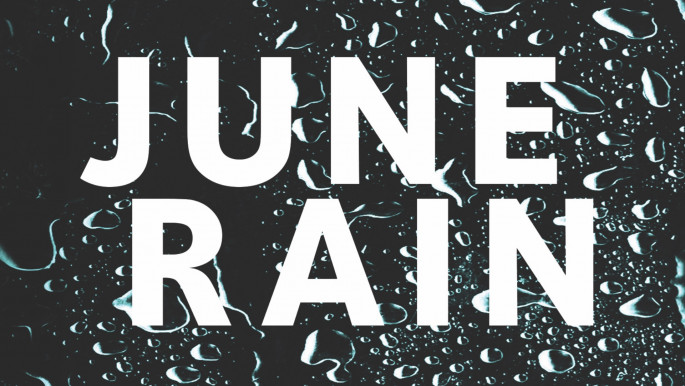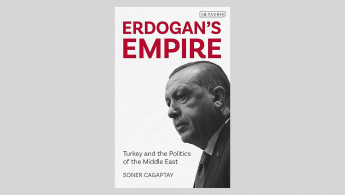Erdogan's Empire: Turkey and the Politics of the Middle East
He has stripped away many core vestiges of the Kemalist state that had been in place since the foundation of the republic in 1923 and went from a literal policy of "zero problems" with Turkey's neighbours to antagonising just about every single one of them.
Soner Cagaptay's latest book about Erdogan – the final in his trilogy about the enigmatic Turkish leader – does quite a good job at chronicling the enormous changes that have transpired in Turkey since Erdogan first rose to power in 2003.
To understand how Turkey got to where it is today, one needs quite a bit of historical context.
Cagaptay gives concise and useful summaries of relevant events in the latter stages of the Ottoman Empire and throughout the secularist Kemalist republic. He also employs them as loose historical precedents to present events.
For example, the book explains how the last of the Sultan rulers of the Ottoman Empire sought to reform their moribund and decaying state through Westernisation and the adaption of a pragmatic foreign policy in recognition of their increasingly weak and precarious position.
 |
|
| Read more from The New Arab's Book Club: June Rain: A powerful portrait of identity and division in Lebanon |
By the time the Young Turks arrived on the scene, however, they hurriedly joined Germany's side in World War I under the promise of being given Russian territory. The eager pashas ended up fighting Britain, France, and Russia simultaneously and, unsurprisingly, lost, a series of events the book briefly compares to present-day Turkey's forays into Syria.
More interestingly, Cagaptay points out that Erdogan's view of the Ottoman's amounts to an incorrect caricature promulgated by none other than the Kemalist state education system that sought to impugn them and their reputation.
Ironically, whereas the last generation of sultans drank alcohol and partied Erdogan believes they were strictly devout and pious Islamists.
"The irony is that while trying to revise the pre-Ataturk Ottoman Empire, Erdogan is actually trying to revive the caricatured version of the Ottomans," Cagaptay writes. He also notes that "Erdogan has embraced the straw man and has dedicated himself to the task of making that straw man real."
In another twist of historical irony, Erdogan has done his utmost to dismantle the secular republic that Ataturk built by using many of the same methods of Turkey's founding father to do so, albeit in the service of establishing a non-secular Islamist Turkish state.
The book does a good job illustrating how Erdogan, especially during the 2000s, masterfully manipulated and outmanoeuvred his various rivals, both foreign and domestic.
 |
Over the course of the last decade, the Republic of Turkey has gone through some dramatic transformations under the presidency of Recep Tayyip Erdogan |  |
For example, partnering with the Gulenist network in Turkey and using EU accession talks – which had long had the capability of deposing government's they felt threatened the state – to successfully wrest power away from Turkey's generals, who hitherto had long had immense influence over Turkish politics in ways not wholly unlike how the military in Egypt does to this day.
In the 2010s, however, the Syrian conflict and other events saw the Turkish president make a series of strategic miscalculations that severely undermined his ambitions of making Turkey a major power.
While Ankara successfully used soft power to gain appeal and admiration in the Middle East its hope that this would translate into hard political power after the Arab Spring was severely misplaced and ultimately backfired.
 |
|
| Read more from The New Arab's Book Club: Mohammed bin Salman: The rise to power of Saudi Arabia's Machiavellian prince |
In Syria, Erdogan gambled that supporting the rebels would lead to the ouster of President Bashar al-Assad. He also expected American assistance and support in this endeavour. Instead, the rebels were unable to overthrow Assad and groups like the Islamic State (IS) gained ground in Syria.
When the US did finally militarily intervene in Syria, it did so solely against IS in partnership with Syrian Kurdish YPG – essentially the Syrian offshoot of Ankara's arch-enemy, the Kurdistan Workers' Party (PKK). Turkey's failed Syria policy resulted in it having "the distinction of being hated by all three key actors fighting in Syria's civil war: the Assad Regime, the YPG and ISIS."
Cagaptay reminds us of how Erdogan's survival instincts invariably shape his decisions, citing the examples of his severing of ties with Israel in 2010, only to restore them in 2016, and his entering into peace talks with the PKK in 2013, only to brand them Turkey's greatest enemy a little over two years later.
Aside from documenting Erdogan's Machiavellian seizure and consolidation of power the book also provides some useful geopolitical analysis exploring Turkey's relations, both historic and contemporary, with Russia, Iran, Europe, the Arab World, and the United States. It also takes a look at Ankara's outreach to sub-Saharan Africa under Erdogan, which in many ways was unprecedented.
Overall, Erdogan's Empire is an excellent evaluation of Turkey's imperial ambitions over the past decade and well-worthwhile reading for anyone who wants to understand what's presently going on in this important country and where it's going.
Paul Iddon is a freelance journalist based in Erbil, Iraqi Kurdistan, who writes about Middle East affairs.
Follow him on Twitter: @pauliddon
The New Arab Book Club: Click on our Special Contents tab to read more book reviews and interviews with authors:
 |
|



